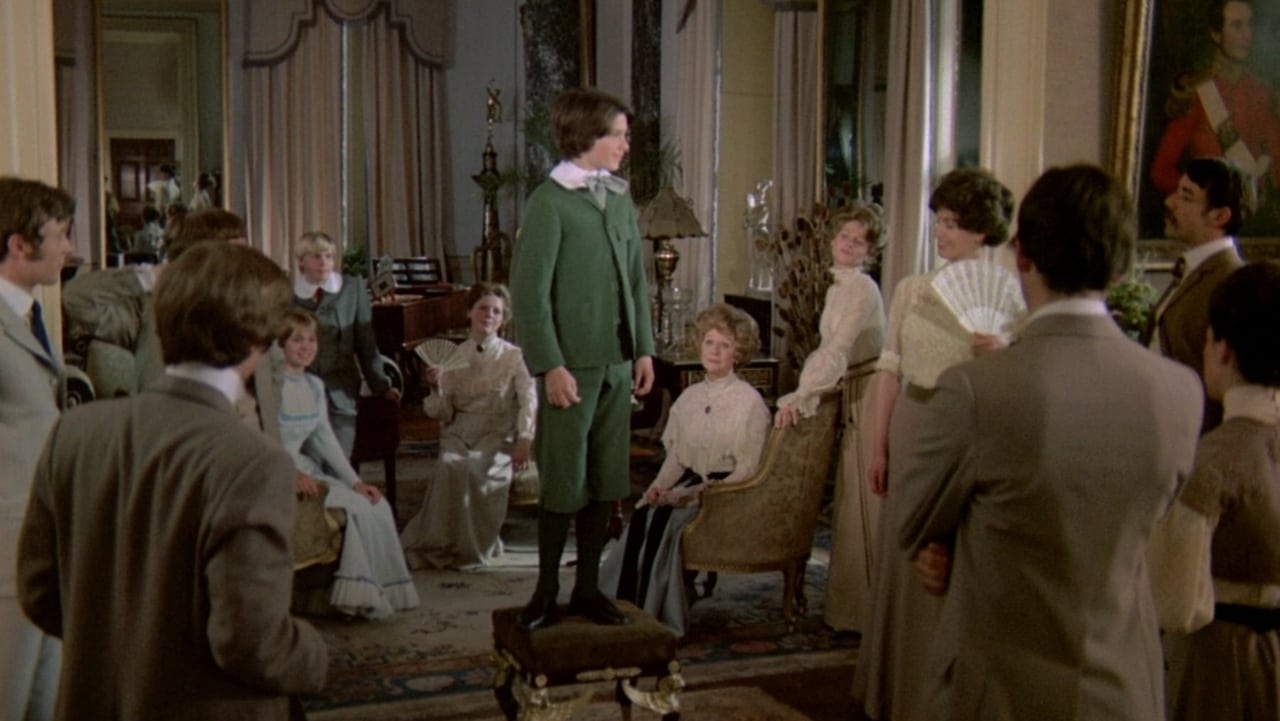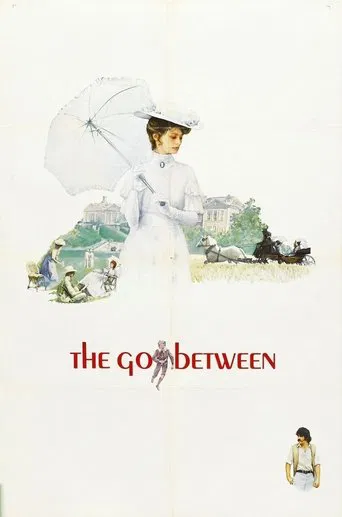

Just perfect...
... View MoreIt is a performances centric movie
... View MoreGreat story, amazing characters, superb action, enthralling cinematography. Yes, this is something I am glad I spent money on.
... View MoreExactly the movie you think it is, but not the movie you want it to be.
... View MoreThis film ought to be better than it is, because it has a lot going for it. The third in a trilogy of movies about the English class system, it benefits like its predecessors (The Accident and The Servant) from a well crafted, highly literate script by Harold Pinter. The house it is largely set in and around - Melton Constable - looks stunning, very different from its present sad condition. It benefits from a stellar cast of actors, some of the best in the UK at the time. Julie Christie looks absolutely gorgeous, at her best, and Margaret Leighton turns in a dazzling performance as the embattled and indignant matriarch. So where does it fall down? It lacks tension to start with. Losey's direction is lacklustre, just look at the cinematography in some of the longer, interior scenes, it's basically painting by numbers. The whole film is languid, like the hot Norfolk summer it is set in. The colour print has not worn well. And the music is inappropriate for both tone and plot, all jangling piano, far too loud and intrusive. Still, it's worth watching for the recreation of rural England pre-1914. This is so well done, albeit a tad over the top at times in the playing up of class differences (especially in the cricket match)
... View MoreIn 1900 Norfolk, England, twelve-year-old Dominic Guard (as Leo Colston) goes to spend the summer at the beautiful country estate of blond school chum Richard Gibson (as Marcus Maudsley). The lads have fun wrestling while young Mr. Guard gets to know his pal's family. His chief interest is young Mr. Gibson's alluring sister Julie Christie (as Marian). An extremely beautiful woman, Ms. Christie arouses those "coming of age" feelings in Guard. She makes a "fuss" over Guard, dressing a knee wound and buying him a new suit. While Gibson is bedridden with measles, Guard is coerced into delivering love notes as "The Go-Between" for Christie and hunky neighboring farmer Alan Bates (as Ted Burgess)...But, Christie is engaged to Edward Fox (as Hugh Trimingham), a member of her own social class. As Guard experiences his own sexual awakenings, he becomes conflicted about continuing to deliver the love notes, especially as he genuinely likes Christie and both of the men she is involved with. This story of sex and class has some major problems - like the underwritten villainess played by Margaret Leighton, the parallel witchcraft being practiced by the protagonist, and the sputtering "flash-forward" ending. But, "The Go-Between" is a spectacular-looking film, with cinematographer Gerry Fisher and the crew making it well worth eyeing - and Joseph Losey leads Guard and his co-stars to fine performances.******* The Go-Between (12/70) Joseph Losey ~ Dominic Guard, Julie Christie, Alan Bates, Richard Gibson
... View MoreRichly-detailed period romantic drama, told more or less from a child's viewpoint but treated with the maturity one has come to expect from a Losey film (the main plot is interspersed with fragmented clips of the boy as an old man - played by Sir Michael Redgrave - revisiting the aristocratic country estate where the majority of the narrative takes place).Though the characters are rather swamped by their surroundings (the two leads are particularly subdued) - as captured by the gleaming cinematography of Gerry Fisher and the elegant décor of Carmen Dillon - the film allows for several good performances from a sturdy cast, including Dominic Guard (as the boy Leo who acts as messenger in the impossible love between upper-class Julie Christie and commoner Alan Bates, both of whom he idolizes), Edward Fox (as Christie's intended, a war-hero), as well as Margaret Leighton and Michael Gough (as her parents); Leighton's role remains in the background for most of the time but, then, she asserts herself during the last third to bring down the couple's relationship - with the unwilling assistance of the bewildered Guard. Besides, Michel Legrand contributes an atypically ominous yet haunting score.This was the third and last time Losey and screenwriter Harold Pinter worked together, constituting a very fruitful and quite extraordinary collaboration; for about two-thirds of its length, the film finds Losey somewhere near his best - the contemporary subplot where Leo reprises his 'services' for an older Christie works less well, in my opinion (and is too sketchily presented anyway), rendering an already deliberately-paced film somewhat overlong! THE GO-BETWEEN won the Golden Palm at the Cannes Film Festival, was nominated for an impressive 12 BAFTA awards (winning 4) but received only 1 Oscar nomination (for Leighton as Best Supporting Actress).
... View MoreI agree with the previous reviewer that the time-shifts seem unnecessary and serve only to complicate the film. There's also an unlikely implication that the events of the Norfolk summer which Leo experienced 40 years ago were so traumatic that he had become psychologically incapable of getting married.But for me, although there's not much that happens in the plot, this film is heavy with nostalgia. It was the first school film I saw on arriving at a Northamptonshire boarding school. Like Leo, I was 13 and didn't understand everything that was going on.Would I recommend it to today's youth? Well yes, but I wouldn't expect a large proportion of them to sit the entire way through it. It just doesn't have anything like the pace of today's blockbusters or teen movies. The enjoyment of this film is now largely an intellectual one -- it's about the laughable views of the upper class, and about book-to-film transfers.Incidentally, to my knowledge, this film has never been available for sale on DVD. And yet in March 2006, it was given away as a freebie DVD with the UK's Sunday Telegraph. The film industry is seriously undervaluing its back-catalogue. Who knows what next -- Lindsay Anderson's brilliant 'IF' in a packet of cereal??
... View More